Fatal snake bites in Florida are extremely rare, but survivors of bites from certain species can experience extreme pain that requires hospitalization. It’s important to note that while venomous snakes are dangerous, the odds of dying from a snake bite are likely much lower than the average resident expects. The National Institutes of Health, also known as the NIH, calculates the mortality rate from native Florida snake bites between zero and 0.01 percent annually.
In a pediatric snakebite registry review that covered 2000 to 2013, most cases involving snakebites on children were reported in Texas, Florida, Georgia, North Carolina, Arizona, and California
Florida is home to six species of venomous snakes: the Eastern Diamondback Rattlesnake, the Timber Rattlesnake, the Dusky Pygmy Rattlesnake, the Coral Snake, the Cottonmouth (also known as the Water Moccasin), and the Copperhead.
The Eastern Diamondback Rattlesnake (Crotalus adamanteus):
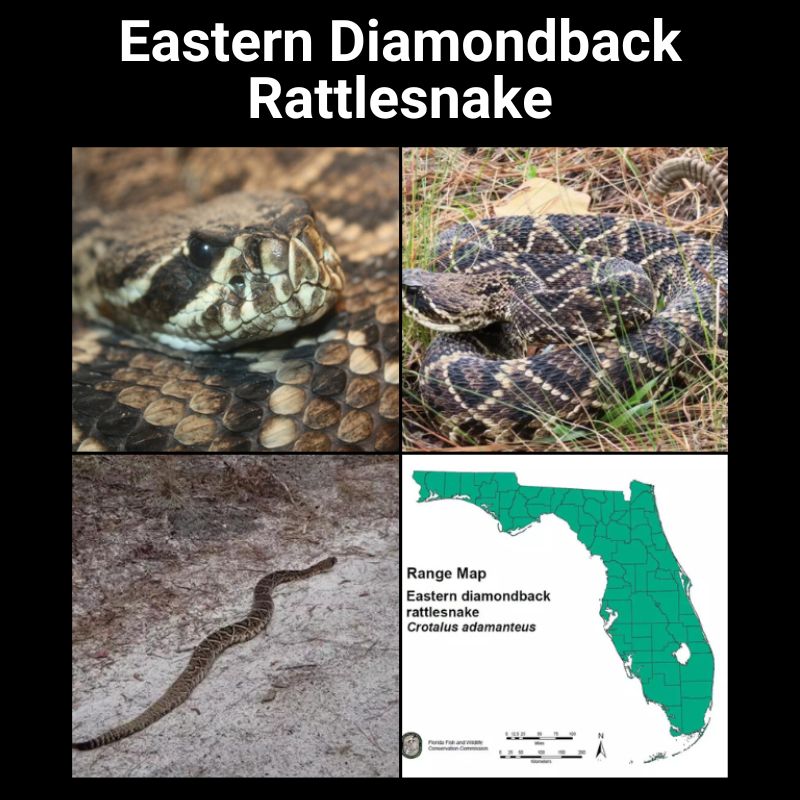
Known for its distinctive diamond pattern along its back, is the largest rattlesnake species in Florida. It can be found in pine forests, coastal scrublands, and palmetto flatwoods. Although highly venomous, it generally avoids human contact.
The Timber Rattlesnake, (Crotalus horridus):
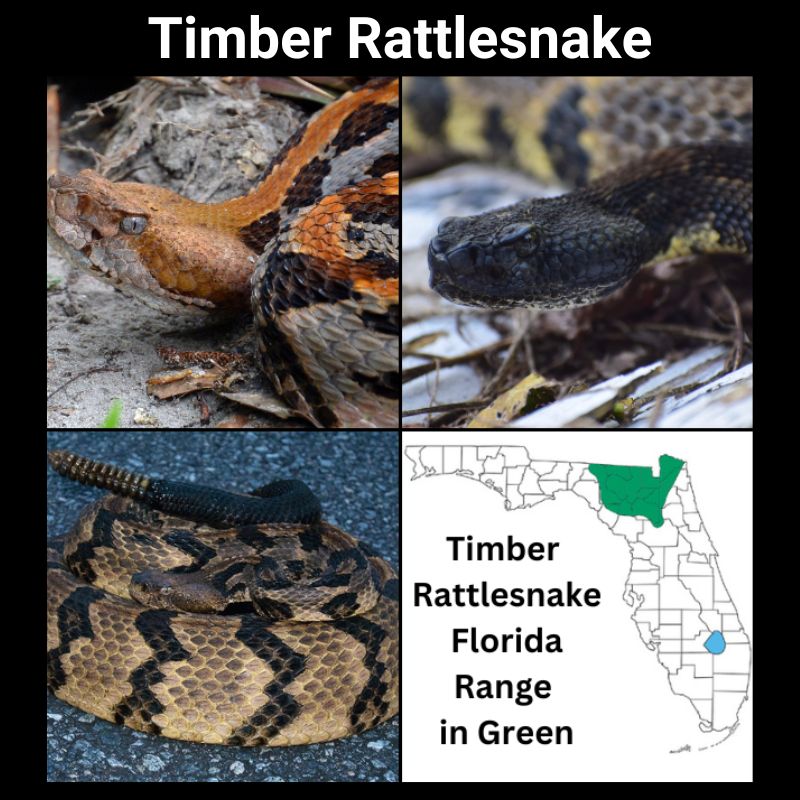
The Timberline Rattlesnake is not as prevalent in Florida as the Eastern Diamondback and is primarily found in the northern part of the state. It prefers hardwood forests and mixed pine-hardwood forests. This species is known for its distinctive dark bands.
The Dusky Pygmy Rattlesnake, (Sistrurus miliarius barbouri)
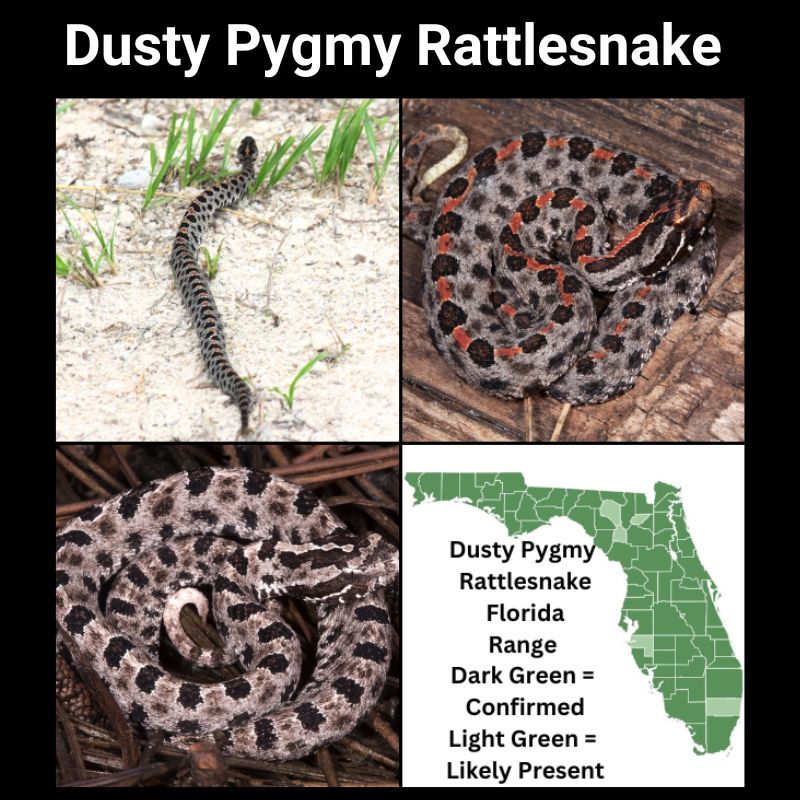
The Dusky Pygmy Rattlesnake is a small yet venomous species found throughout Florida in various environments, including pine flatwoods, scrublands, and near wetlands. Despite its small size, its bite can be painful, but it is rarely fatal to humans.
The Harlequin Coral Snake,(Micrurus fulvius):
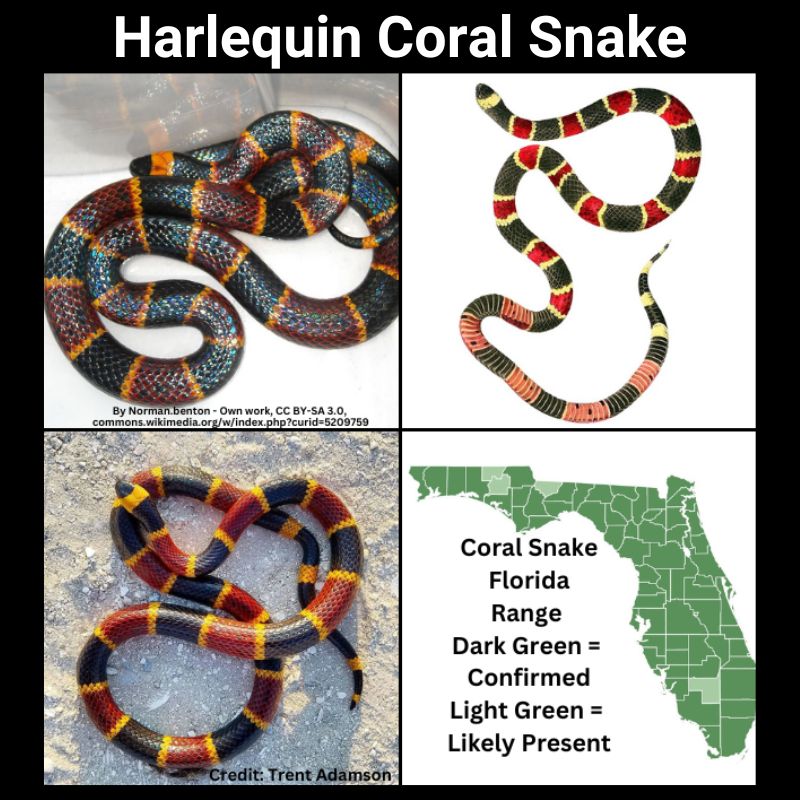
Native Floridians likely recall school rhyme variations of. “Red touching black, safe for Jack. Red touching yellow, kill a fellow”, to differentiate Coral Snakes from King Snakes. Thanks to its bright red, yellow, and black banding, the Coral Snake easy to identify. Coral snakes are highly venomous snakes with neurotoxic venom, but if a bite victim seeks immediate medical treatment, they can avoid a fatal bite. The coral snake is found in wooded, sandy, and marshy areas and tends to be reclusive, often hiding under debris or in burrows.
The Cottonmouth, or Water Moccasin, (Agkistrodon piscivorus):
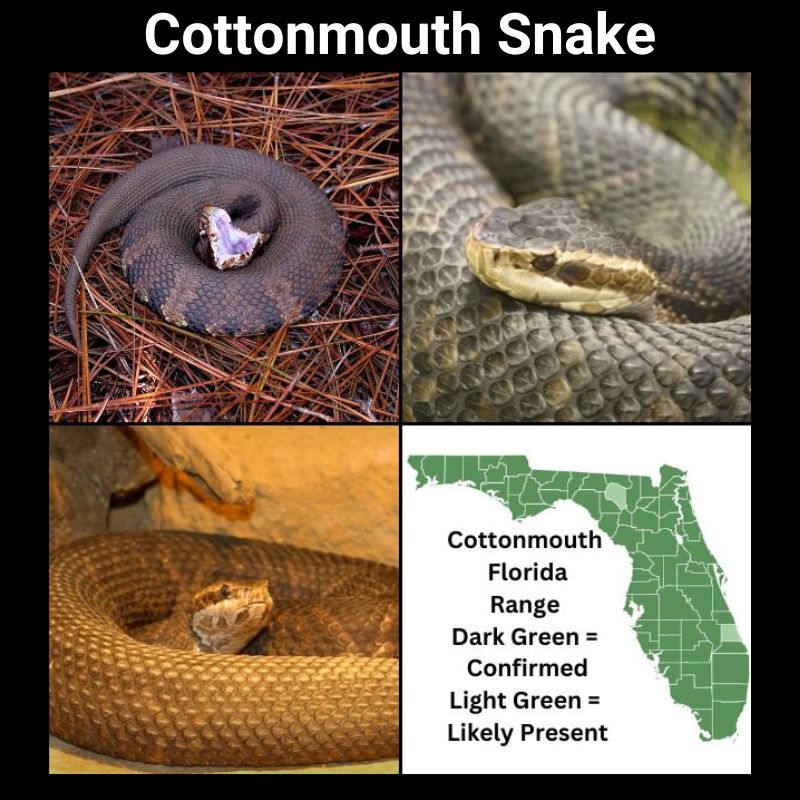
The Cottonmouth, also known as the Water Moccasin, is a semi-aquatic snake commonly found in and around water bodies such as swamps, marshes, and rivers. It can grow to an average of 2-4 feet in length, and displays a distinctive white mouth when threatened. Its bite can be very dangerous, and it is known for being more aggressive than other species. Cottonmouths are often confused with nonvenomous water snakes. Water snakes have round pupils, no facial pit, and when viewed from above, have visible eyes.
The Copperhead Snake, (Agkistrodon contortrix):
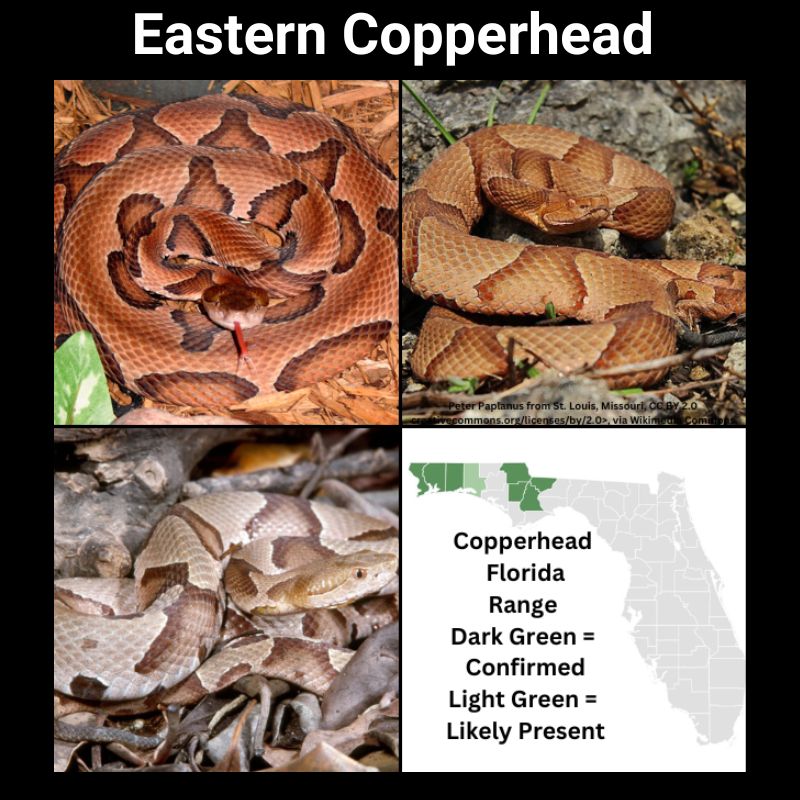
Coophead Snakes are rare in Florida and mainly found in the Panhandle region. This species prefers deciduous forests and mixed woodlands. The Copperhead has a distinctive pattern of hourglass-shaped bands and is responsible for many snake bites in the United States. However, its venom is relatively mild compared to other venomous snakes in Florida.
STEPS TO TAKE IF YOU ARE BITTEN BY A VENOMOUS SNAKE IN FLORIDA:
- Call 9-1-1 immediately! Do not wait until symptoms develop!
- Keep the victim calm and comfortable.
- Remove rings, watches, or restrictive clothing near the bite.
- Keep the bitten extremity (Finger, hand, foot, etc.) below the heart
- Record the time of the bite and symptoms as they develop..
DO NOT:
- DO NOT wait for symptoms to develop – call 9-1-1 immediately and get medical care!
- DO NOT try to catch the snake! This is not necessary for treatment, and you will probably get bitten!
- DO NOT make an “X” incision to suck out the venom or apply ice, heat, tourniquet, or electric shock!
- DO NOT give the victim alcohol, caffeine, drugs, or other stimulants!
Understanding and respecting these venomous snakes is crucial for coexistence, as they play an important role in controlling rodent populations and maintaining ecological balance.
FLORIDA HOSPITALS THAT CARRY ANTIVENOM INCLUDE
Desoto Memorial Hospital
Arcadia, FL
(863) 494-3535
Lakeland Regional Health Medical Center
Lakeland, FL
(863) 687-1100
Lakewood Ranch Medical Center
Bradenton, FL
(941) 728-2100
Tampa General Hospital
Tampa, FL
(813) 844-7000
Adventhealth Dade City
Dade City, FL
(352) 521-1100
Adventhealth Orlando
Orlando, FL
(407) 303-5600
Manatee Memorial Hospital
Bradenton, FL
(941) 746-5111
Sarasota Memorial Hospital
Sarasota, FL
(941) 261-0010
Cleveland Clinic Indian River Hospital
Vero Beach, FL
(772) 567-4311
Cleveland Clinic Tradition Hospital
Port St Lucie, FL
(772) 419-4834
FATAL SNAKE BITES RECORDED IN FLORIDA HISTORY:





















